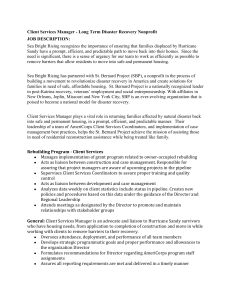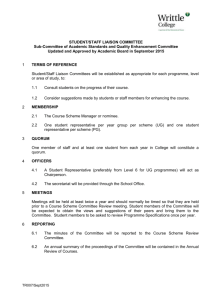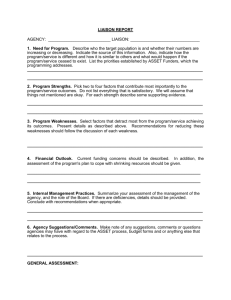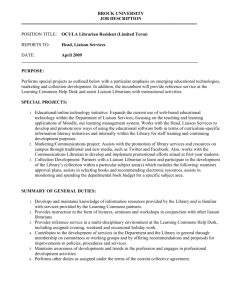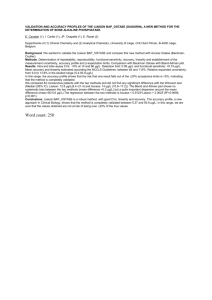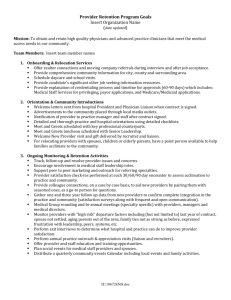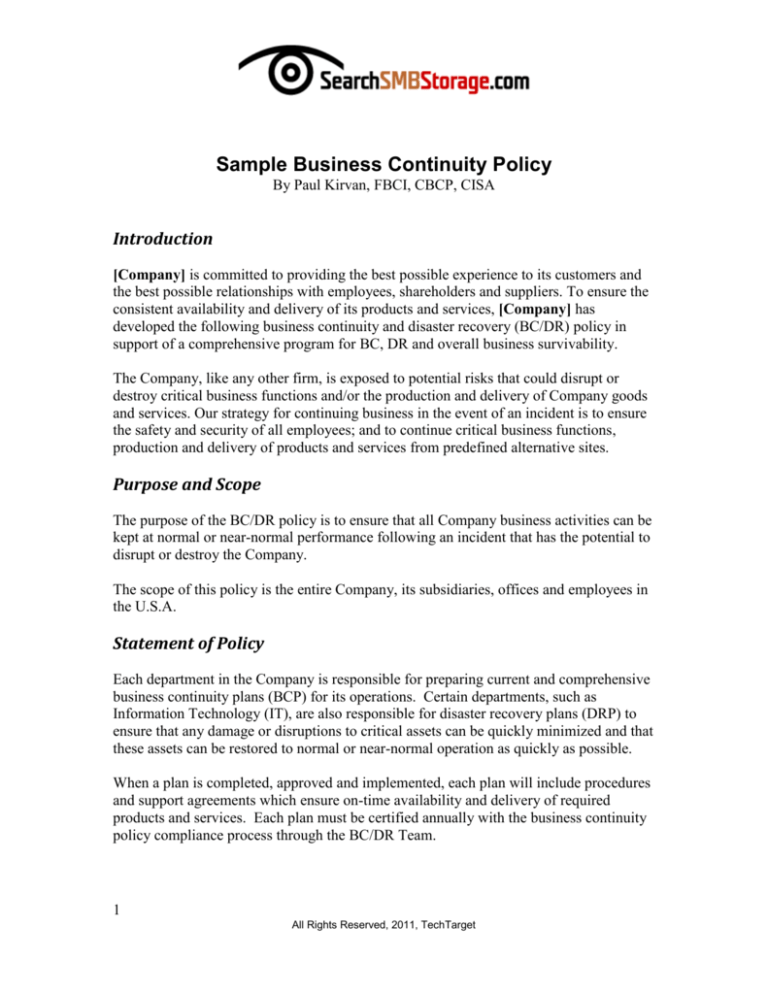
Sample Business Continuity Policy
By Paul Kirvan, FBCI, CBCP, CISA
Introduction
[Company] is committed to providing the best possible experience to its customers and
the best possible relationships with employees, shareholders and suppliers. To ensure the
consistent availability and delivery of its products and services, [Company] has
developed the following business continuity and disaster recovery (BC/DR) policy in
support of a comprehensive program for BC, DR and overall business survivability.
The Company, like any other firm, is exposed to potential risks that could disrupt or
destroy critical business functions and/or the production and delivery of Company goods
and services. Our strategy for continuing business in the event of an incident is to ensure
the safety and security of all employees; and to continue critical business functions,
production and delivery of products and services from predefined alternative sites.
Purpose and Scope
The purpose of the BC/DR policy is to ensure that all Company business activities can be
kept at normal or near-normal performance following an incident that has the potential to
disrupt or destroy the Company.
The scope of this policy is the entire Company, its subsidiaries, offices and employees in
the U.S.A.
Statement of Policy
Each department in the Company is responsible for preparing current and comprehensive
business continuity plans (BCP) for its operations. Certain departments, such as
Information Technology (IT), are also responsible for disaster recovery plans (DRP) to
ensure that any damage or disruptions to critical assets can be quickly minimized and that
these assets can be restored to normal or near-normal operation as quickly as possible.
When a plan is completed, approved and implemented, each plan will include procedures
and support agreements which ensure on-time availability and delivery of required
products and services. Each plan must be certified annually with the business continuity
policy compliance process through the BC/DR Team.
1
All Rights Reserved, 2011, TechTarget
[Company] acknowledges that it will use the British Standard, BS 25999, Part 2:2007 as
the guidance and structure for its business continuity activities and the ISO/IEC 24762
standard for all comparable disaster recovery activities.
[Company] recognizes the importance of an active and fully supported BC/DR program
to ensure the safety, health and continued availability of employment of its employees
and the production and delivery of quality goods and services for customers and other
stakeholders. [Company] requires the commitment of each employee, department and
vendor in support of the activities required to protect Company assets, mission and
survivability.
Policy Leadership
[Name of Executive] is designated as the corporate management liaison responsible for
the BC/DR program. Resolution of issues in the development of, or support of, all
BC/DR plans and associated activities should first be coordinated with the BC/DR Team
and appropriate internal or external organizations before submitting to the corporate
management liaison. The issue resolution process is defined in the following section.
Verification of Policy Compliance
BC/DR compliance verification is managed by the BC/DR Team with support from other
relevant internal departments. Each plan must define appropriate procedures, staffing,
tools and workplace planning activities necessary to meet compliance requirements. Plan
templates have been developed to facilitate the plan development process, and these
templates shall be used for all plans. Detailed policy compliance verification activities
are defined by the BC/DR Team and are included in the Appendix at the end of this
policy.
BC/DR Compliance Verification is required annually and is facilitated by the BC/DR
Team. Waivers for temporary compliance verification may be given if a detailed written
waiver request issued by the department manager is approved by the BC/DR Team
corporate management liaison. Maximum delay for compliance is one year from the
original date of compliance.
Penalties for Non-Compliance
In situations where a Company department does not comply with the BC/DR policy, the
BC/DR Team will prepare a brief stating the case for non-compliance and present it to
the BC/DR corporate management liaison for resolution. Failure to comply with BC/DR
policies within the allotted time for resolution may result in verbal reprimands, notes in
personnel files, termination and other remedies as deemed appropriate.
2
All Rights Reserved, 2011, TechTarget
Appendixes (as needed)
Examples of appendixes can include lists of employees responsible for BC/DR activities,
members of the BC/DR Team, corporate management liaison(s), external vendors,
external stakeholders and external customers. Relevant service level agreements (SLA)
may be included if they are critical to policy compliance. Plan templates can be added
here. An example of an appendix follows.
Appendix A – Additional Policies
1. All department heads within [Company] are responsible for business continuity (and,
where appropriate, disaster recovery) for their area and are required to have a
documented BC plan, signed by them and countersigned by the BC/DR corporate
management liaison.
2. Each department must have a BC/DR coordinator to assist in the implementation and
maintenance of BC/DR plans, as well as readiness reporting for that department.
3. BC/DR readiness within the Company must be reported on a quarterly basis to the
BC/DR corporate management liaison.
4. Deviations from this policy must be approved by the BC/DR corporate management
liaison and others he/she shall designate. The internal audit department will review
policy compliance.
3
All Rights Reserved, 2011, TechTarget


